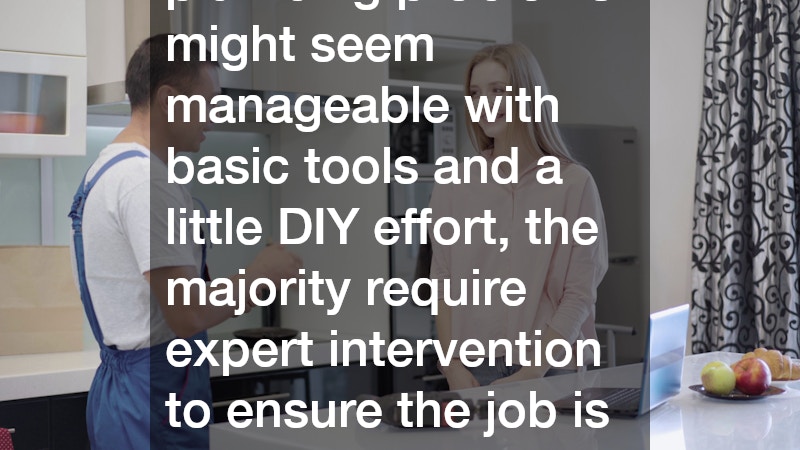Plumbing issues are a fact of life for homeowners and business operators alike. While modern systems are generally reliable, everyday wear and tear, environmental factors, and poor maintenance can lead to a variety of problems. Recognising the most common plumbing problems is crucial for taking timely action and avoiding costlier repairs down the line. Whether it’s a simple leak or a more complex sewer issue, knowing what to look out for can help you stay one step ahead of potential water damage and household disruption.
Leaky Taps & Pipes
One of the most frequently reported plumbing issues is a leaky tap or pipe. Though a minor drip may seem harmless, over time it can waste hundreds of litres of water and increase utility bills significantly.
Leaks often occur due to worn-out washers, corrosion, or high water pressure stressing the system. If left unaddressed, these leaks can escalate into serious structural issues, especially when water seeps into walls or floorboards. A proactive approach involving regular inspections can mitigate the risk, and when leaks are spotted, calling qualified plumbers is essential to ensure the repair is carried out correctly and safely.
In some cases, leaks may be hidden behind cabinetry or within walls, making them harder to detect. The first signs may appear as water stains, mould growth, or a musty odour in specific rooms. Moisture sensors and infrared cameras can assist professionals in locating concealed leaks without causing unnecessary damage. Early detection and professional repairs not only prevent water waste but also reduce the risk of secondary problems such as wood rot and electrical hazards.
Blocked Drains & Toilets
Clogged drains and toilets are another widespread issue in Australian homes. In kitchens, grease and food particles tend to build up in the pipes over time, eventually leading to slow drainage or complete blockage. In bathrooms, hair, soap residue, and foreign objects often cause water to back up, creating an unsanitary and inconvenient mess. Toilets are especially prone to blockage due to the flushing of inappropriate materials like wipes, sanitary products, or too much toilet paper.
Most clogs can be prevented with good habits and routine maintenance. For example, installing drain strainers and avoiding the disposal of oils and fats down the sink can significantly reduce the likelihood of blockages. When prevention fails, however, plungers and chemical drain cleaners may offer a temporary fix—but if the problem persists or recurs frequently, it may be a sign of a deeper issue in the plumbing system. In such cases, plumbers with access to advanced tools like hydro-jetting machines or drain cameras can identify and eliminate the root cause more effectively than DIY solutions.
Low Water Pressure
Low water pressure can affect the functionality of taps, showers, and appliances throughout the house. This problem can stem from a variety of sources, such as pipe corrosion, sediment build-up in fixtures, or hidden leaks. It may also be the result of issues in the municipal water supply, which are beyond the homeowner’s control. Regardless of the cause, low water pressure can be frustrating and may impact daily tasks like washing dishes or taking a shower.
A plumbing inspection can pinpoint the cause of low pressure and guide the most suitable solution. For instance, if corrosion is identified in older galvanised steel pipes, replacing them with copper or PVC may restore optimal pressure. Sediment in aerators and showerheads can often be cleared with basic cleaning, but if the underlying issue involves ageing infrastructure or a complex internal leak, enlisting the help of skilled plumbers is usually the wisest course of action. Their experience and access to diagnostic tools make it possible to resolve the issue efficiently and with minimal disruption.
Hot Water System Failures
Few things are more disruptive than a malfunctioning hot water system. Whether the problem involves a lack of hot water, strange noises coming from the tank, or inconsistent temperature, hot water system failures can cause major discomfort and inconvenience. These systems can fail due to reasons such as thermostat issues, sediment build-up, corrosion, or simply old age. In Australia, many hot water systems are under heavy demand during the colder months, which increases the likelihood of wear and tear.
Routine servicing of the unit, including flushing out sediment and checking components, can extend the lifespan of your hot water system and reduce the likelihood of sudden breakdowns. However, when problems do occur, attempting to repair these systems without the right qualifications can be dangerous. Gas and electric units, in particular, should only be serviced by licensed plumbers who understand the safety protocols and compliance requirements associated with these appliances.
When to Call the Professionals
While some plumbing problems might seem manageable with basic tools and a little DIY effort, the majority require expert intervention to ensure the job is done safely and thoroughly. From identifying the source of low pressure to installing replacement parts in a hot water system, licensed plumbers bring knowledge, tools, and experience that the average homeowner does not possess. Attempting repairs without the proper training can result in further damage or even health and safety risks.
Maintaining a healthy plumbing system requires a mix of preventative measures, prompt attention to emerging issues, and the involvement of trusted professionals when needed. By understanding the most common problems and responding appropriately, property owners can avoid expensive repairs and keep their systems running smoothly year-round.




